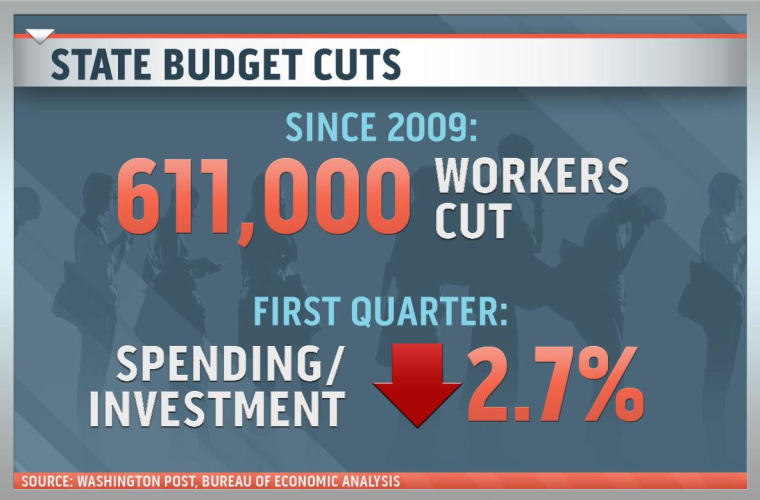Lost among all the stories of Washington's fiscal cliff is a problem that is playing out across the country: state governments facing severe fiscal crises that may only get worse before they get better.
A report released by the State Budget Crisis Task Force, an independent group that looked at the books of six states, found that since 2008 state governments have scaled back their operations.
According to the study, “This is a fundamental shift in the way governments have responded to recessions and appears to signal a willingness to ‘unbuild’ state government in a way that has not been done before.”
The report blames growing Medicaid and pension costs, volatile tax revenues and federal budget cuts for wreaking havoc on states’ finances.
We could dissect each of these points--and it’s likely both parties will try to spin them to fit their agendas--but let’s focus on the last one, because federal cuts are having a big impact on the states. In 2009, state governments, according to the report, relied on federal grants for 32% of their revenue. The study warns that taking away just some of that money would be devastating, to say the least.
Already, state and local governments have had to slash more than 600,000 jobs since President Obama took office. According to a Paul Krugman column from April, this is the exact opposite of what happened during the first years of the Clinton and Bush Administrations, when public employee rolls grew. Krugman estimates that the unemployment rate would be hovering near 7% if politicians hadn’t taken an ax to the public sector.
Republicans argue that a small government workforce is a good thing. But what is sometimes forgotten is that the government contributes to economic growth. According to the Bureau of Economic Analysis, a decline in government consumption is partly to blame for the slow recovery.
